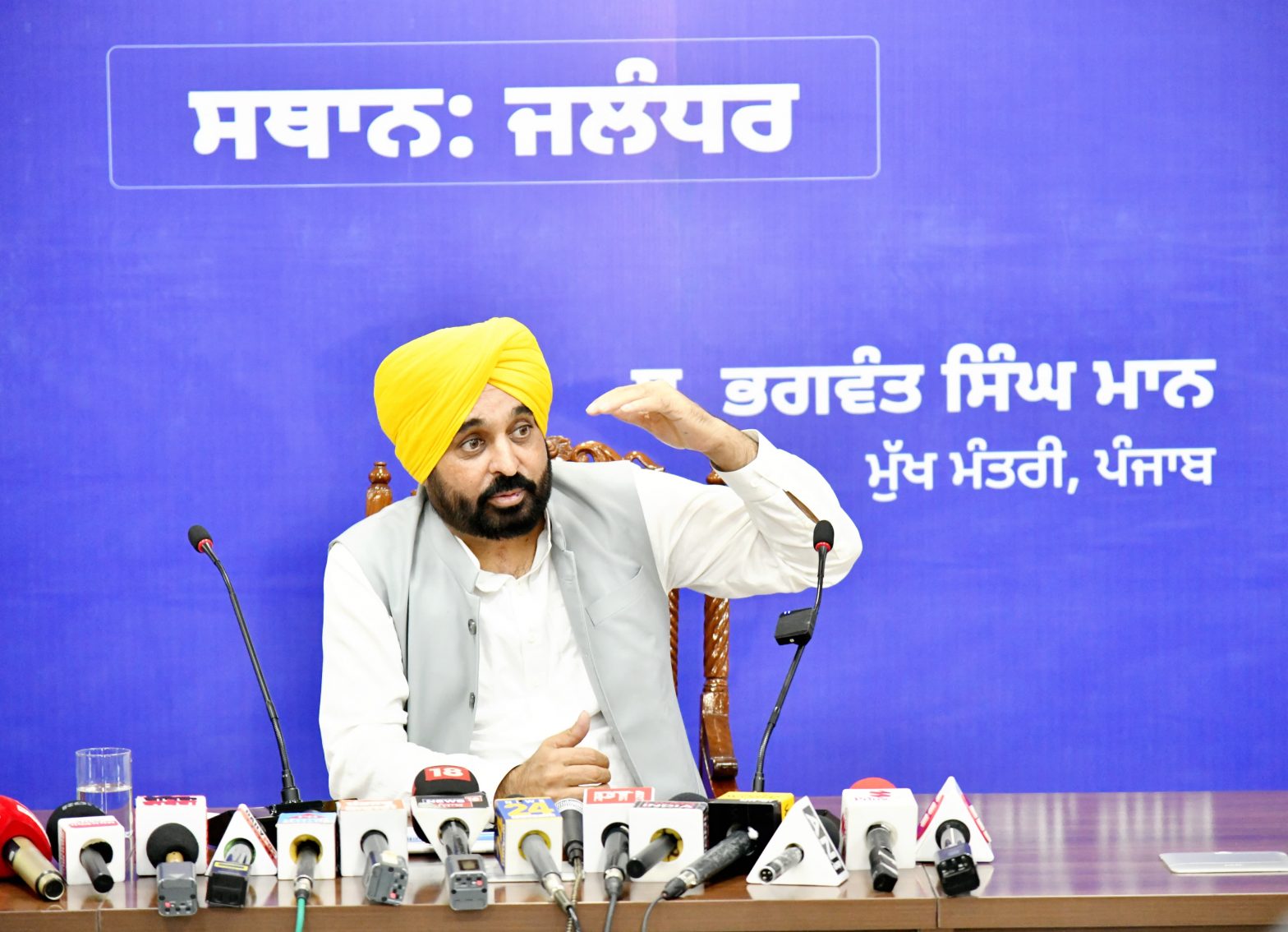
Jalandhar: Punjab Chief Minister Bhagwant Singh Mann on Thursday announced that state government will boycott the NITI Aayog meeting called by Prime Minister Narendra Modi on July 27 at New Delhi.
Interacting with media persons here today, the Chief Minister said that the decision has been taken after the Union Budget failed to allocate funds to Punjab, despite the state’s significant contributions to the nation. He termed the Union Budget as “Kursi Bachao Budget” (Save the Chair Budget) and accused the central government of political vendetta against non-BJP ruled states. Bhagwant Singh Mann bemoaned that Punjab, being a main and major grain-producing state, was ignored in the Budget, and the Finance Minister’s announcement of providing ration to 80 crore people did not mention Punjab.
The Chief Minister emphasised that Punjab shares a 532-kilometer international border and has always stood for the nation’s interest. However, he said that the union government has blocked roads and imposed a burden on the state. Bhagwant Singh Mann recalled his efforts to waive off the Rs. 7.5 crore imposed by the Union Government for sending military forces during the Dinanagar and Pathankot attacks.
Chief Minister assured that his government will raise its financial resources to make the state economically viable and demanded a special status for Punjab. He highlighted Punjab’s contributions to the freedom struggle and its role as the food bowl of India. Bhagwant Singh Mann said that farmers of the state were ignored, and barriers were raised to curb them.
The Chief Minister slammed the union government for withholding Rs. 10,000 crore from the state and the Governor for raising trivial issues daily. He assured that every effort will be made to ensure law and order and appealed to the Governor not to create conflict. Bhagwant Singh Mann said that the decisions regarding appointment of Vice Chancellors of Universities should be made by elected representatives, not selected ones. He appealed to the Governor to refrain from creating an atmosphere of conflict, given the constitutional nature of the post.
